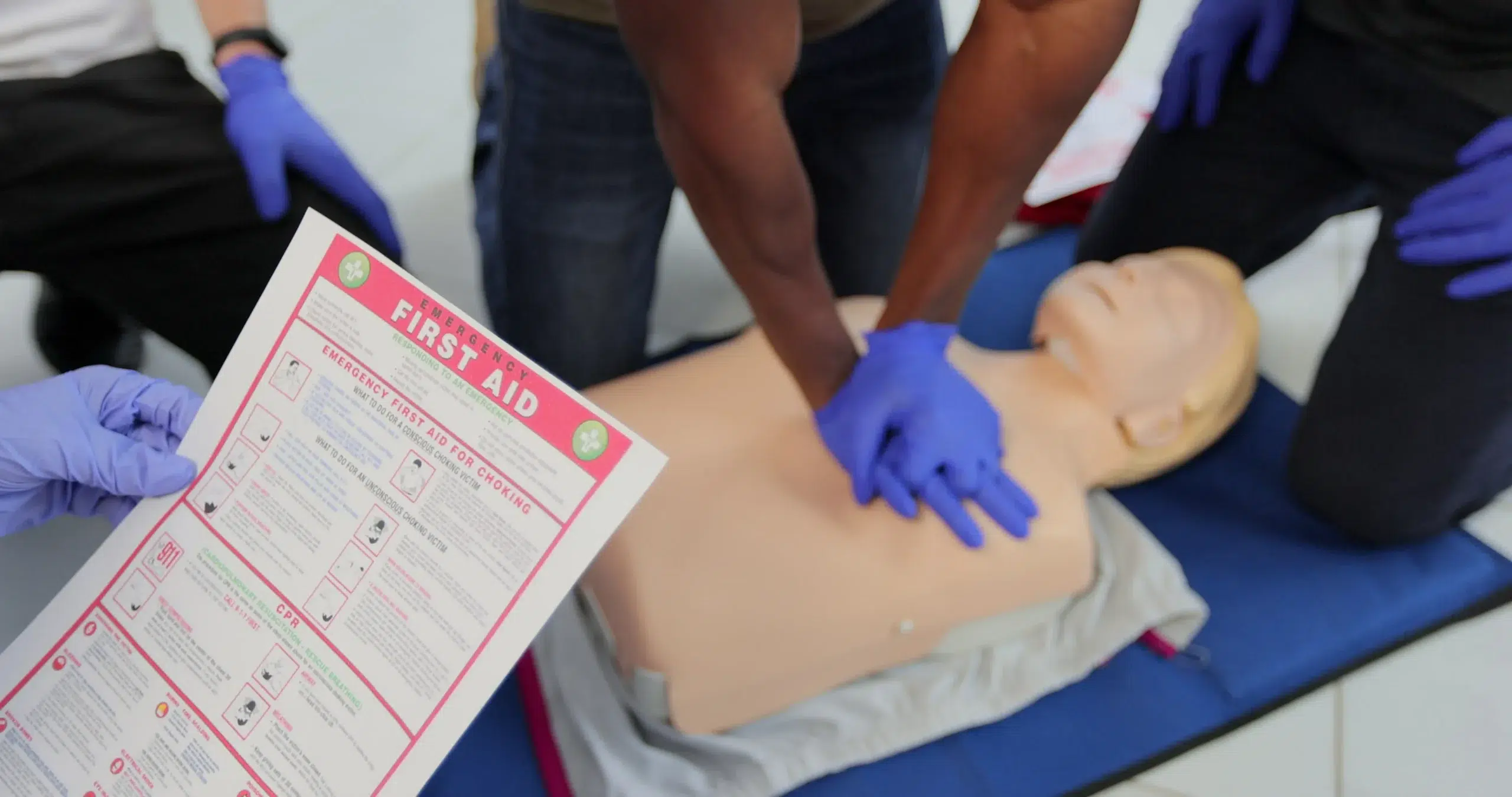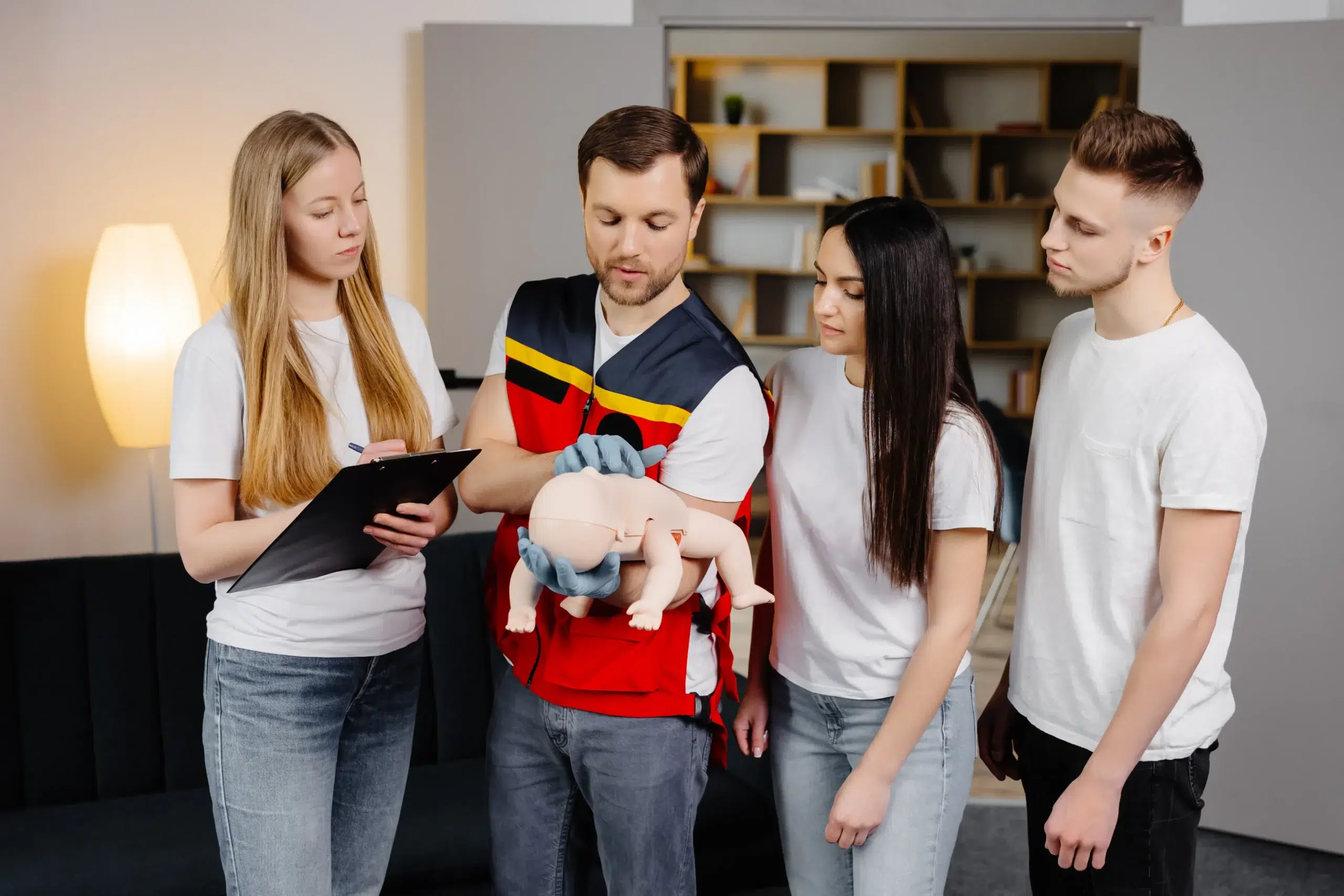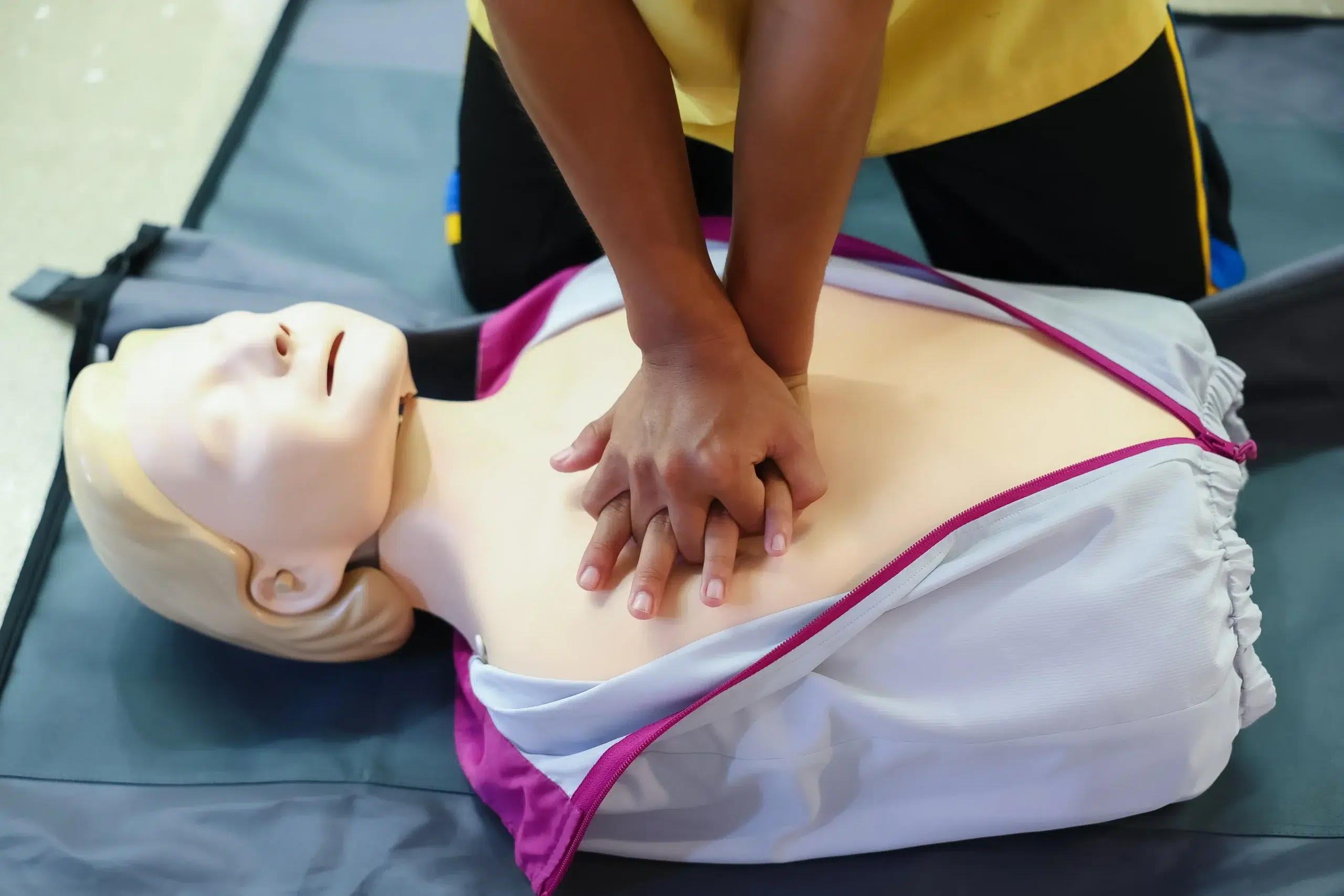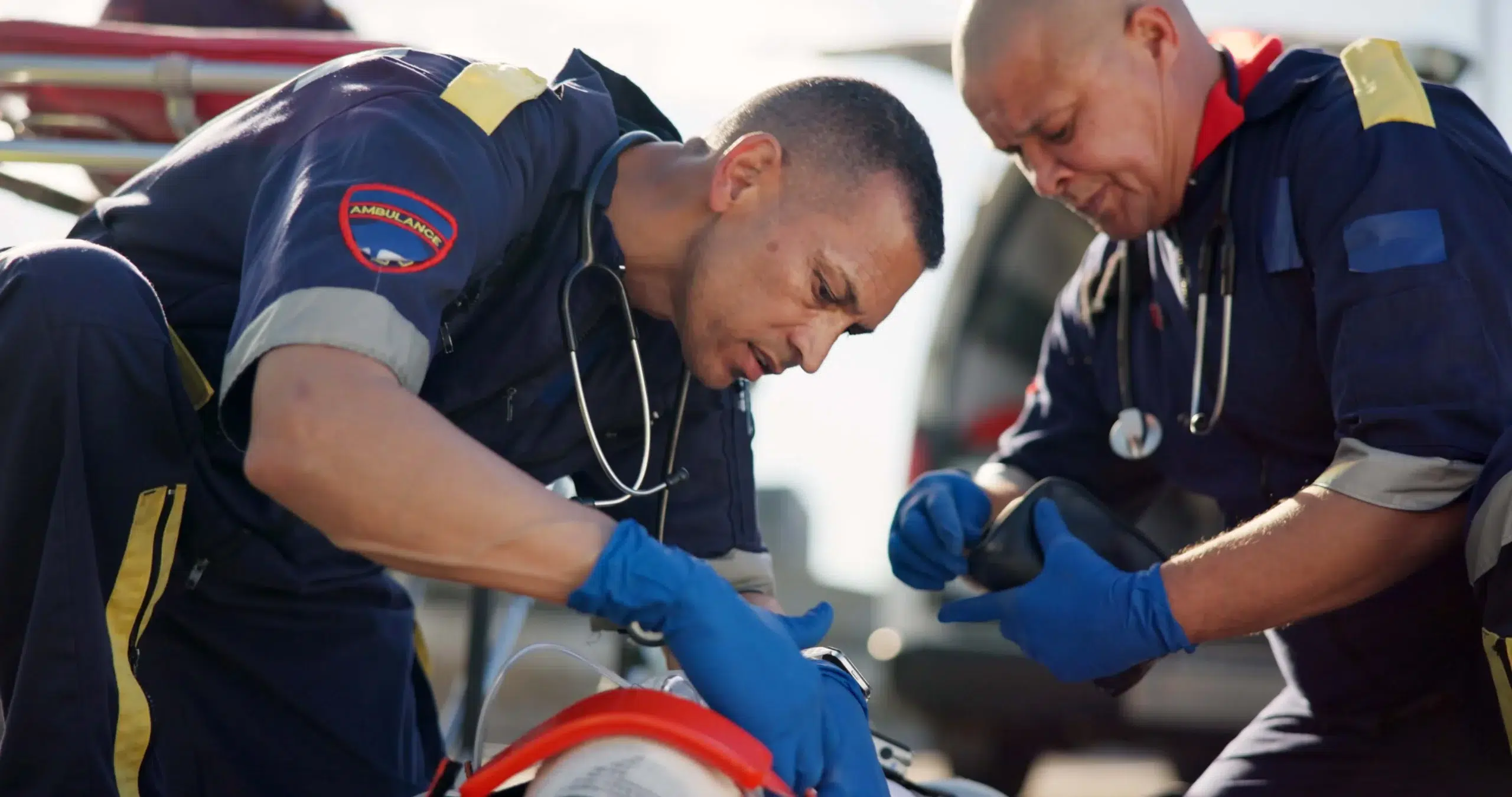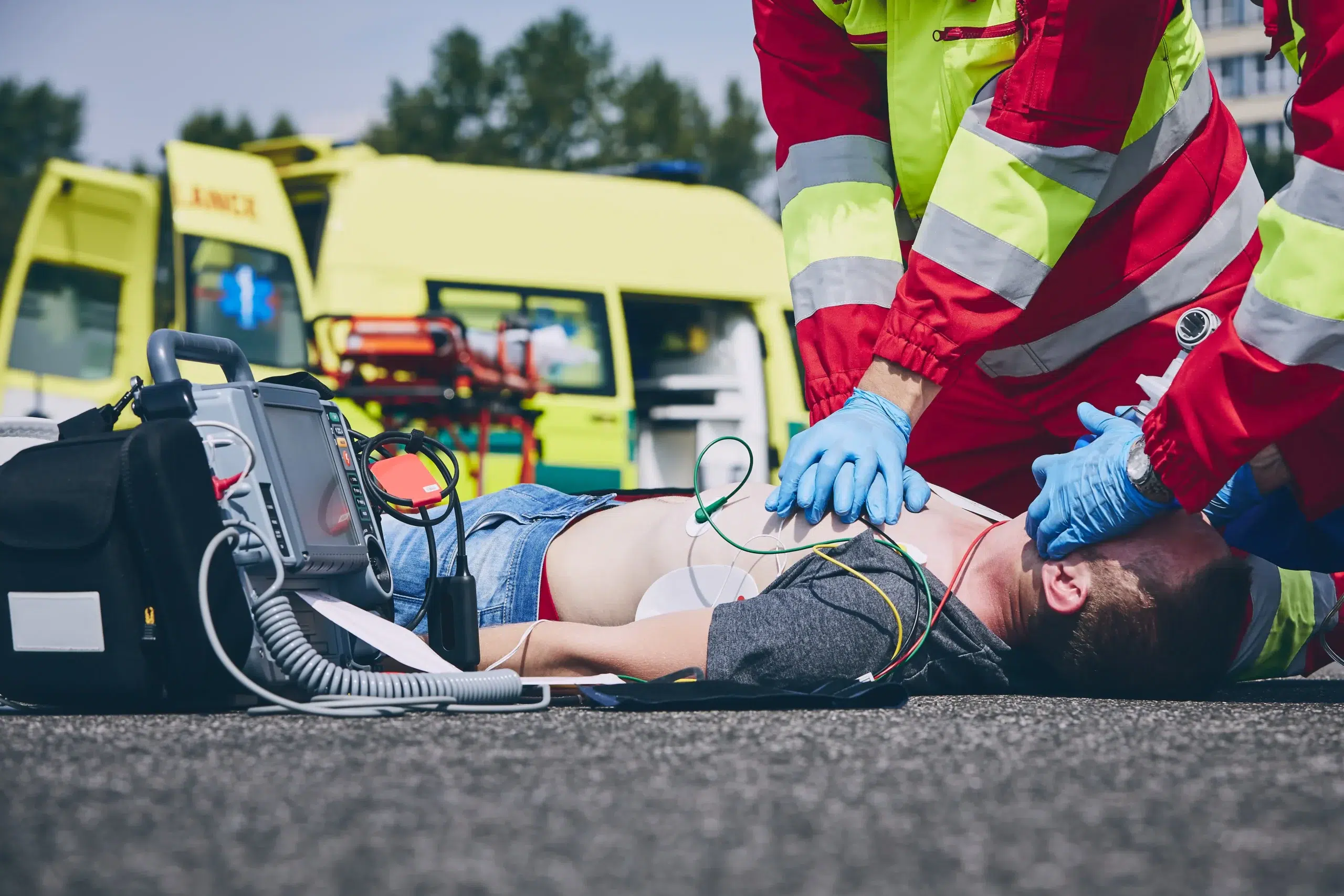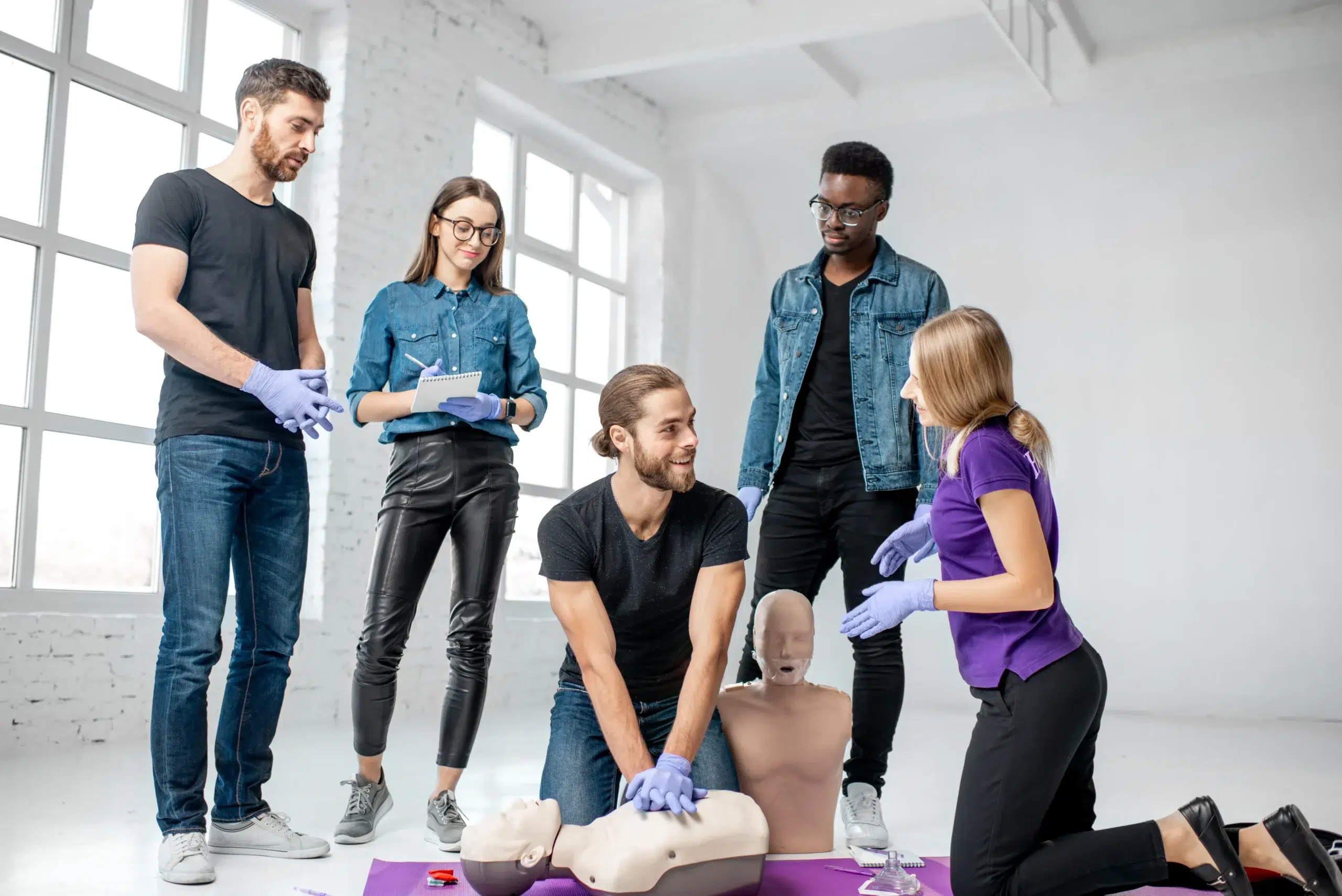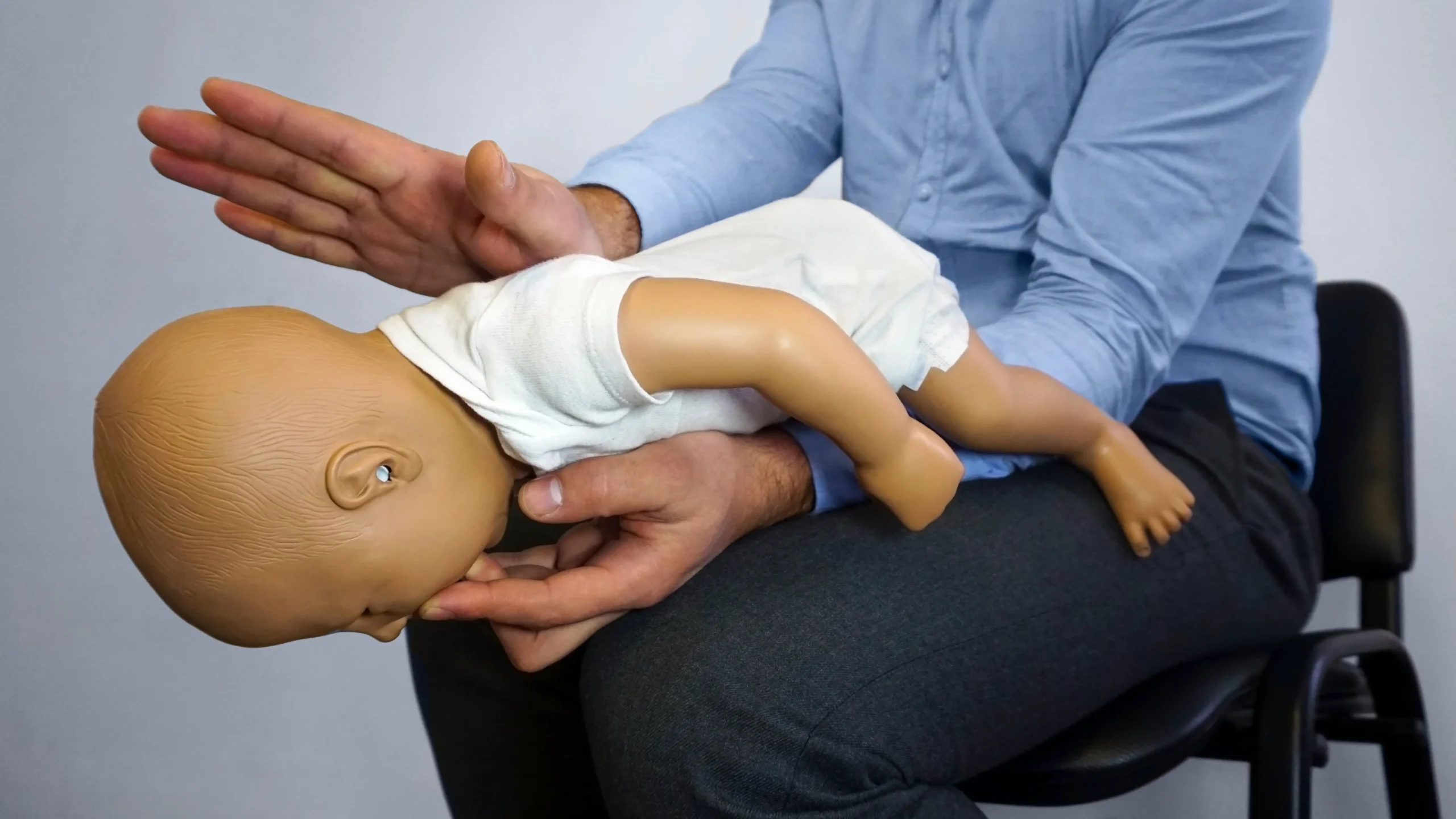Seconds matter in a medical emergency, and having BLS training can give you the confidence to act quickly and effectively. This guide is designed to help you find the perfect BLS classes in Newark for your needs. We’ll cover everything from the core skills you’ll learn to the different types of courses available. Whether you’re a healthcare professional, a student exploring career options, or someone who wants to be prepared for any situation, this guide will provide valuable insights into BLS certification, costs, and the benefits it can offer. Let’s explore the world of BLS training together.
Key Takeaways
- BLS certification empowers you to act in emergencies: Learning CPR, AED use, and other essential skills gives you the confidence to respond effectively in critical situations.
- Choose a reputable BLS provider: Seek out AHA-accredited training centers with experienced instructors, convenient locations, and flexible scheduling options to fit your needs. Consider factors like class size and pricing.
- Stay current with your BLS skills: Recertify every two years to maintain your credentials and ensure you’re up-to-date on the latest life-saving techniques and guidelines. This keeps your skills sharp and your certification valid.
What is BLS?
What BLS Is
Basic Life Support (BLS) is a level of medical care used in life-threatening emergencies until more advanced medical personnel arrive. BLS can be performed by trained bystanders, including healthcare providers, and focuses on maintaining a patient’s airway, breathing, and circulation. Think of it as the first line of defense in a medical crisis. BLS certification training covers essential skills like CPR, using an automated external defibrillator (AED), and relieving choking. These skills can make a real difference during an emergency. For more information, visit our CPR and First-Aid Certification Courses page.
Why BLS Matters in Healthcare Emergencies
BLS is especially critical in healthcare settings. For healthcare providers, having current BLS skills is crucial for positive patient outcomes. When seconds count, knowing how to perform high-quality CPR and use an AED can significantly improve a patient’s chances of survival. BLS training emphasizes early intervention and effective teamwork, both essential for patient safety. It empowers healthcare professionals to respond confidently and efficiently in critical situations. Learn more about our BLS courses in Newark.
Skills You’ll Learn in BLS Training
In a BLS certification course, you’ll gain hands-on experience with several life-saving techniques. You’ll learn how to perform high-quality CPR for adults, children, and infants, including recognizing the signs of cardiac arrest and responding appropriately. The course also covers using an AED, a device that can help restore a normal heart rhythm. You’ll also learn techniques for relieving choking and basic airway management. These skills are based on the latest American Heart Association (AHA) guidelines, ensuring you receive current and effective training. We offer discounted group rates for those interested in training with colleagues or friends.
Where to Find BLS Classes in Newark
Finding the right BLS class can feel overwhelming, but several reputable providers offer training in Newark. Here are a few options to explore:
Safety Training Seminars
Safety Training Seminars, a woman-owned AHA Training Center, offers various AHA courses, including BLS, ACLS, PALS, and CPR training. They’re known for their flexible scheduling, including discounted group classes and student discounts. They even offer the convenience of on-site training, coming to your location. Their commitment to accessibility is backed by a low price guarantee and extended customer service hours. Serving Newark, Fremont, and San Jose, they are a convenient option for those in the area. You can view their BLS course schedule and register online.
American Red Cross
The American Red Cross offers BLS certification courses designed for healthcare providers. They provide a blended learning experience, combining online learning with in-person skills sessions. Check their website for class schedules and availability in surrounding areas. While the Red Cross is a well-known organization, their BLS certification might not be accepted by all employers, so it’s always best to confirm acceptance with your workplace.
Newark Beth Israel Medical Center
Newark Beth Israel Medical Center provides a comprehensive BLS for Healthcare Provider course adhering to the latest AHA guidelines. This course includes hands-on practice, simulations, and a written exam. It’s a good option for those seeking a hospital-based training program. Contact them directly for scheduling and registration information.
CPR Certification Newark
CPR Certification Newark offers BLS certification from an AHA-certified training site. They focus on a streamlined, one-day class format, making it a convenient choice for busy professionals. Be sure to verify their specific course offerings and AHA alignment to ensure it meets your requirements.
Rapid CPR
Rapid CPR is another option for BLS training in the Newark area. Look for reviews and testimonials to get a sense of past participants’ experiences. It’s essential to confirm their AHA certification status and course content to ensure it aligns with your needs.
CPR Certification Plus
CPR Certification Plus offers AHA BLS CPR courses in Newark with certified instructors. They emphasize same-day certification, which can be beneficial for those needing certification quickly. As always, double-check their AHA affiliation and course details to ensure they meet your specific requirements.
What Happens in a BLS Course?
A BLS course equips you with the skills to respond to life-threatening emergencies. It’s a comprehensive program covering adult, child, and infant BLS. Let’s break down what you can expect during your training.
Core Skills and Techniques
BLS courses prioritize essential life-saving techniques. You’ll learn how to recognize the signs of someone experiencing a cardiac arrest or other life-threatening issues. The training covers high-quality CPR for adults, children, and infants, along with how to use an AED and relieve choking. Critical skills like rescue breathing and effective chest compressions are central to the curriculum, ensuring you can provide immediate care in various situations. These courses adhere to the most current American Heart Association guidelines for BLS. At Safety Training Seminars, our instructors emphasize these core skills, giving you the confidence to act quickly and effectively.
Course Length and Format
BLS courses offer flexibility to fit your schedule. Instructor-led training at our Newark location typically lasts around four to five hours. If you prefer a blended learning approach, some courses combine approximately one to two hours of online coursework with two to three hours of in-person skills practice. This hybrid model allows you to learn the basics at your own pace before demonstrating your skills in a hands-on setting. We offer various course formats to meet your individual needs.
Hands-on Practice
BLS isn’t just about theory; it’s about practical application. A significant portion of your BLS course involves hands-on training. You’ll work with a certified instructor in simulated scenarios, practicing your skills on manikins and participating in realistic emergency simulations. This immersive experience builds your confidence and competence in performing BLS techniques effectively. Hands-on practice is essential for mastering the skills needed to respond confidently in real-world emergencies. Our small class sizes ensure you receive personalized attention and ample practice time.
Online vs. In-Person
Choosing between online and in-person BLS training depends on your learning style and preferences. Online BLS courses offer convenience and self-paced learning, often incorporating interactive elements. In-person classes at our Newark facility provide direct interaction with an instructor and classmates, allowing for immediate feedback and collaborative learning. Both formats offer valuable learning experiences, so consider what best suits your needs and check out our course schedule.
How Much Do BLS Classes in Newark Cost?
Understanding the cost of BLS classes is an important part of your decision-making process. Let’s break down the typical price ranges, potential discounts, and factors that can influence the overall cost.
Typical Prices
In Newark, California, BLS CPR and AED classes typically cost around $69.95. Adding First Aid certification to your BLS training brings the total to about $89.95. These courses usually take about three hours to complete. Check our schedule for the latest pricing and available BLS class times in Newark.
Discounts and Promotions
While some organizations offer discounts on training materials, finding discounts on the BLS course itself can be challenging. One way to save is by taking advantage of our low price guarantee at Safety Training Seminars. We match any lower advertised price for comparable BLS classes in the area. We also offer discounts for groups, making it a cost-effective choice for workplaces or groups of friends.
Group and Student Rates
If you’re training a group of employees or colleagues, ask about group discounts. Many providers, including Safety Training Seminars, offer reduced rates for group bookings. Contact us for a customized quote. Student discounts may also be available, so check with your chosen provider.
Pricing Factors
Several factors can influence the cost of a BLS class. The 2015 American Heart Association (AHA) guidelines ensure a high standard of quality and comprehensive instruction, which can impact pricing. Other factors, like location and instructor experience, can also play a role in the final cost.
How Does BLS Certification and Recertification Work?
Getting and maintaining your BLS certification is straightforward. Here’s what you need to know:
Get Your Initial Certification
The BLS CPR class, formerly known as BLS for Healthcare Providers, provides comprehensive training in essential CPR skills and AED use in emergencies. You’ll learn to perform high-quality CPR and gain confidence in responding to life-threatening situations. Safety Training Seminars offers AHA-compliant BLS CPR training in Newark.
How Long Certification Lasts and How to Renew
Your AHA BLS CPR card remains valid for two years after you complete the course. To maintain your skills and stay current with the latest guidelines, you’ll need to recertify before your current certification expires. Our BLS course schedule makes it easy to find a convenient recertification class.
Same-Day Certification
We know your time is valuable. That’s why Safety Training Seminars offers same-day BLS certification. You’ll receive your BLS CPR card as soon as you finish the class, allowing you to put your new skills to use immediately. Learn more about our same-day certification process and register for an upcoming class.
Find the Right BLS Class Provider
Choosing the right BLS class provider is crucial for receiving high-quality training that prepares you for real-world emergencies. Here’s what to look for:
Accreditation and Recognition
First and foremost, confirm your chosen provider is accredited by a recognized organization like the American Heart Association (AHA). Safety Training Seminars, for example, is an AHA Training Center offering courses that meet the AHA’s rigorous standards. This accreditation ensures your certification will be widely accepted.
Instructor Qualifications
Experienced instructors make all the difference. Inquire about the instructors’ backgrounds and certifications. Look for providers whose instructors have extensive experience in healthcare and emergency situations. Their practical insights and guidance will be invaluable as you develop these life-saving skills. For instance, Safety Training Seminars prioritizes experienced instructors for all their BLS courses.
Class Size and Individual Attention
A smaller class size allows for more personalized instruction and feedback. While large lectures can be informative, hands-on skills like CPR require individual attention. Ask about the typical class size to ensure you’ll have ample opportunity to practice and ask questions. Consider providers like Safety Training Seminars, which offer discounted group classes while maintaining a focus on individual learning.
Flexible Scheduling
Life gets busy, so finding a BLS class that fits your schedule is essential. Look for providers offering various class times and formats, including weekend and evening options. Safety Training Seminars, for example, offers a range of scheduling options to accommodate busy professionals and students. This flexibility makes it easier to prioritize this important training.
Get Ready for Your BLS Class
So, you’ve signed up for a BLS class—fantastic! Here’s what you can expect and how to prepare:
What to Expect and What to Bring
Your BLS class will cover essential life-saving skills, including CPR, using an AED, and relieving choking. Expect a combination of instruction, demonstrations, and hands-on practice. You’ll receive your AHA BLS CPR card the same day you successfully complete the course. At Safety Training Seminars, we make getting your BLS Certification in Newark a simple, one-day process.
Bring a photo ID and wear comfortable clothing suitable for physical activity. You’ll be practicing on mannequins, so you’ll want to move freely. We provide all the necessary equipment, but you’re welcome to bring your own BLS manual. We also encourage you to bring a notebook and pen for notes.
Pre-course Study Materials
While not mandatory, reviewing the American Heart Association’s BLS Provider Manual before class can be helpful. It covers the latest science and educational guidelines for CPR and ECC, giving you a head start on the material.
Physical Requirements
BLS training involves physical actions like chest compressions and rescue breaths. Be prepared to kneel, bend, and perform moderate physical activity. If you have any physical limitations, inform your instructor before class so they can offer modifications or support. It’s important to be able to perform the techniques effectively in a real emergency. BLS certification training includes using AEDs, basic airway management, and techniques for assisting someone who is choking.
Why Get BLS Certified?
Getting your BLS certification is a smart move for many reasons—it can open doors in your career, give you the confidence to handle emergencies, and fulfill requirements for certain jobs. Let’s break down the benefits.
Career Advancement
BLS certification is a valuable asset for many professions, including healthcare, firefighting, and law enforcement. Adding this certification to your resume shows potential employers you have a solid foundation in emergency care. It signals your dedication to patient safety and preparedness, making you a stronger candidate, especially in competitive fields. Even if it’s not strictly required for your current role, having a BLS certification can demonstrate initiative and a commitment to professional development, potentially leading to promotions or new opportunities.
Respond Confidently in Emergencies
Basic Life Support training prepares you to respond effectively in various emergencies. You’ll learn essential skills like using an automated external defibrillator (AED), managing airways, and assisting someone who is choking. This knowledge empowers you to act quickly and confidently in critical situations, potentially making a life-saving difference. Knowing you have these skills can also reduce your own anxiety and stress during emergencies.
Meet Job Requirements
For many healthcare professionals—like nurses, doctors, and EMTs—BLS certification is often a must-have. It’s frequently a prerequisite for employment in hospitals, clinics, and other healthcare settings. Employers need to know their staff can handle emergencies effectively, and BLS certification provides that assurance. BLS training is more comprehensive than standard CPR/AED courses designed for the general public, covering more advanced techniques and a deeper understanding of life-saving procedures. Make sure you check the specific requirements for your desired profession or workplace.
Register for BLS Classes in Newark
Getting your BLS certification is easier than you think. Between online registration and readily available customer support, you can find a class that fits your schedule and get certified quickly.
Register Online
Many BLS providers offer convenient online registration. Check out Safety Training Seminars’ course calendar and sign up for a BLS class that works for you. Several organizations, like CPR Certification Newark and Brooks CPR, also offer online registration for BLS, ACLS, PALS, and CPR certifications. This streamlined process lets you secure your spot in a class with just a few clicks.
Customer Support
Have questions? Most training centers provide customer support to help you through the registration process. Whether you need help choosing the right course or have questions about prerequisites, a friendly customer service representative can guide you. Reach out to Safety Training Seminars with any questions—we’re here to help! You can also find reviews of CPR Certification Newark to learn more about their students’ experiences.
Find More BLS Resources
Once you’ve earned your BLS certification, staying current on the latest guidelines and techniques is crucial. This section explores how to find refresher courses, valuable learning materials, and community-based training opportunities in Newark and the surrounding areas.
Refresher Courses and Materials
The American Heart Association (AHA) recommends renewing your BLS certification every two years. This ensures you’re up-to-date with the latest science and best practices for CPR and emergency cardiovascular care. Refresher courses cover essential skills and knowledge, reinforcing your ability to respond effectively in critical situations. Many providers, including Safety Training Seminars, offer these refresher courses to help you maintain your skills and keep your certification current. You can also find updated study materials and resources on the AHA website.
Community Workshops and Outreach
BLS training isn’t just for healthcare professionals. Various organizations offer community workshops and outreach programs to equip everyday people with life-saving skills. These programs often focus on CPR and first aid, empowering individuals to respond confidently during emergencies. Check with local community centers, hospitals like Newark Beth Israel Medical Center, or organizations like the American Red Cross to find these valuable resources in your area. You might be surprised at the number of free or low-cost options available. Many providers also offer discounted group classes for businesses, community groups, or families who want to learn together.
Related Articles
- BLS Courses in Newark: Your Complete Guide – Newark CPR Classes
- BLS Courses in San Jose: The Complete Guide – Newark CPR Classes
- Advanced Cardiac Life Support (ACLS) in San Jose – Newark CPR Classes
- Why CPR is Important in Healthcare – Newark CPR Classes
- BLS CPR Classes in Newark, CA – Newark CPR Classes
Frequently Asked Questions
What exactly does BLS cover?
BLS focuses on the immediate response to life-threatening emergencies. It covers core skills like high-quality CPR for adults, children, and infants, using an AED, and relieving choking. It’s the foundation for more advanced life support.
How long does it take to get BLS certified?
BLS courses typically take four to five hours for instructor-led training. Blended learning options, combining online and in-person training, can shorten the in-person portion to two or three hours after completing the online modules. Same-day certification is often available, meaning you receive your BLS CPR card immediately after successfully completing the course.
How much does a BLS class cost in Newark, California?
BLS classes in Newark usually cost between $70 and $90, with combined BLS and First Aid courses slightly higher. Look for providers offering discounts, especially for groups or students. Safety Training Seminars offers a low price guarantee and group discounts.
How often do I need to renew my BLS certification?
BLS certification is valid for two years. To maintain your certification and stay up-to-date with the latest guidelines, you’ll need to take a recertification course before your current card expires.
What should I look for when choosing a BLS training provider?
Look for providers accredited by a recognized organization like the American Heart Association (AHA). Check the instructors’ qualifications and experience, and consider class size for personalized attention. Flexible scheduling options and convenient locations are also important factors.
